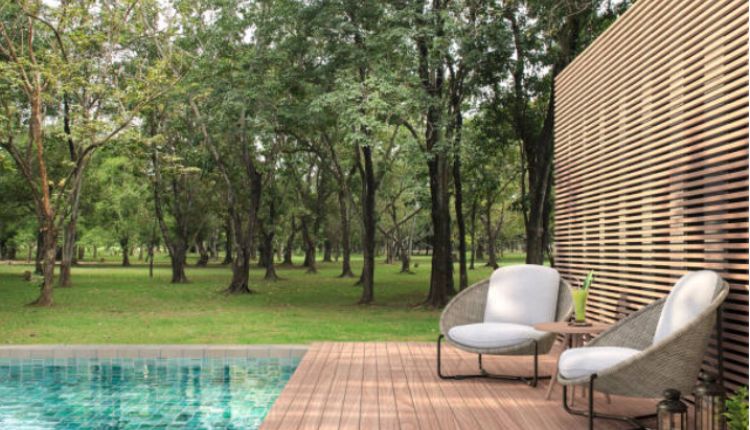Summer in Victoria is a time of joy and recreation. The sun shines brightly, and families across the state eagerly anticipate spending warm afternoons by the pool. While pool time is a fantastic way to enjoy the summer, it’s vital to prioritise safety to ensure that the fun is not marred by accidents or tragedy.
In this article, we will provide essential pool safety information for Victorian families, enabling them to make the most of their summer while keeping loved ones safe.
Supervision is Paramount
Supervision is the first and most critical aspect of pool safety. Never underestimate the importance of a watchful eye, especially when children are involved. Always designate a responsible adult as a designated “water watcher” during pool time. This person should remain vigilant and free from distractions, such as phones or books, and focus solely on watching swimmers. Rotate this duty among adults to ensure constant, undivided attention. This is a simple yet effective strategy to prevent accidents and drowning incidents.
Fencing and Barriers
In Victoria, there are specific regulations in place regarding pool fencing and barriers. All swimming pools, including inflatable and above-ground pools capable of holding more than 30cm of water, must have a compliant safety barrier. Ensure that your pool is surrounded by an appropriate barrier, which must be at least 1.2 metres high. These barriers should also be equipped with self-closing and self-latching gates to prevent unsupervised access. Regularly inspect your fencing and barriers for damage and ensure they are kept in good condition. Find out more information here.
Learn CPR
Knowing how to perform CPR (Cardiopulmonary Resuscitation) is a skill that can be invaluable in the event of a pool-related emergency. Enrol in a CPR course to gain the necessary knowledge and confidence to respond effectively. CPR can mean the difference between life and death, and every pool owner or regular pool user should be prepared to act swiftly and appropriately when the need arises.
Teach Swimming and Water Safety
Teaching children and family members how to swim is one of the most effective ways to prevent accidents in the pool. Enrol your kids in swimming lessons at an early age to ensure they are comfortable and skilled in the water. Additionally, teach them about water safety, such as the importance of not running around the pool, not diving into shallow areas, and not swimming alone. Educating your family about these key safety guidelines can help prevent accidents.
Pool Rules and Guidelines
Establish and enforce a set of pool rules and guidelines for everyone to follow. These rules can include no running on the pool deck, no diving in shallow water, and no horseplay. Post these rules in a visible location near the pool and ensure that all family members and guests are aware of and adhere to them. By setting clear expectations and boundaries, you can reduce the risk of accidents and promote safe pool behaviour.
Floatation Devices and Safety Equipment
Ensure that your pool is equipped with necessary safety equipment, including life jackets and rescue tools like life rings or reaching poles. Life jackets are essential for weaker swimmers, especially children and those who may be unfamiliar with the water. Make sure that these items are easily accessible and that everyone knows how to use them in case of an emergency.
Avoid Alcohol and Drugs
Alcohol and pool activities do not mix. Consuming alcohol or using drugs impairs judgement and coordination, making it more likely for accidents to occur. For a safe pool experience, it’s best to avoid alcohol and drugs while in or around the pool. This rule should be strictly enforced to ensure the well-being of all pool users.
Regular Maintenance
Maintaining your pool is not just about keeping the water clean and clear; it’s also about ensuring the safety features are in good working order. Regularly inspect the pool area, equipment, and safety barriers for signs of wear and tear. Keep all pool maintenance equipment, such as pool chemicals and cleaning supplies, out of reach of children. By staying on top of pool maintenance, you can prevent accidents and ensure a safe and enjoyable swimming environment.
Emergency Response Plan
In the event of a pool emergency, it’s essential to have a well-defined emergency response plan. This plan should include steps for providing immediate first aid, contacting emergency services, and performing CPR if necessary. Make sure all family members are aware of this plan and know how to respond in case of an emergency. Having a clear plan in place can make a significant difference in the outcome of a pool-related incident.
Stay Informed
Pool safety guidelines and regulations can change, so it’s crucial to stay informed about any updates or new requirements in Victoria. Visit the relevant local or state government websites to keep up with the latest pool safety information and regulatins. Being aware of the current rules and recommendations will help you maintain a safe and compliant pool area.
Conclusion
Summer pool time should be a time of relaxation, enjoyment, and family bonding. By prioritising pool safety, Victorian families can ensure that their summer fun is not overshadowed by accidents or tragedy. Supervision, fencing, CPR knowledge, swimming skills, pool rules, safety equipment, and a commitment to avoiding alcohol and drugs are all essential components of pool safety. Regular maintenance and an emergency response plan should also be part of your safety strategy.
Remember, staying informed about current pool safety regulations is crucial to ensure your pool remains compliant with the law. By following these guidelines, you can safeguard summer fun for your family, create lasting memories, and ensure that your pool is a place of enjoyment and relaxation for years to come.

